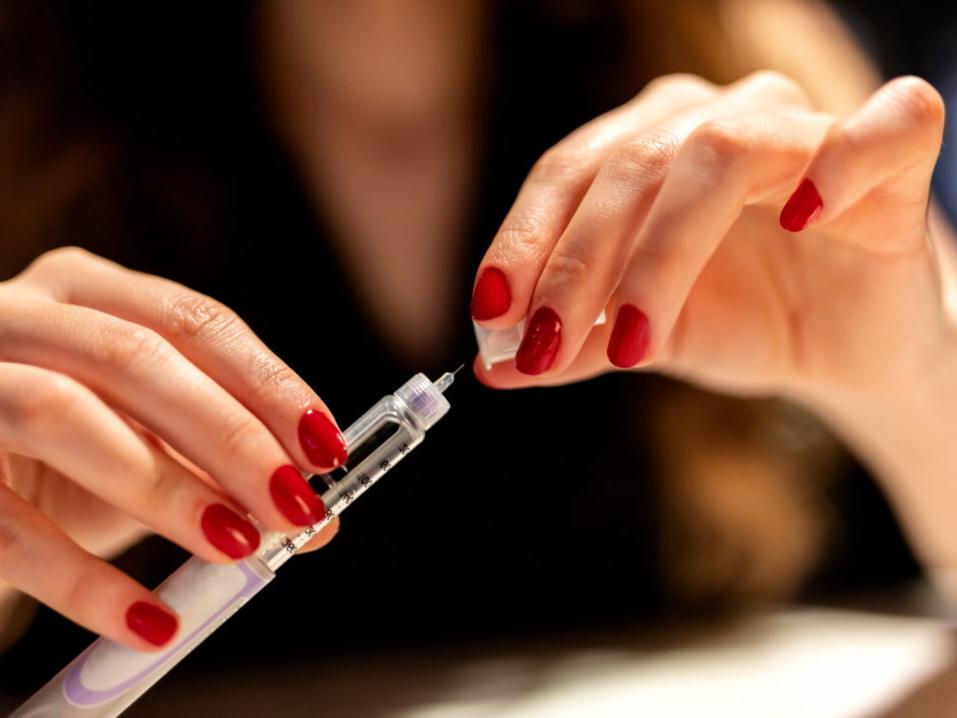When Do I Need HRT?

Navigating Hormone Replacement Therapy & Deciding When It Can Help
Hormone Replacement Therapy (HRT) is an increasingly popular medical intervention technique that involves supplementing or replacing hormones in the body. This can act as a valuable option and long-term solution for a patient experiencing hormonal imbalances and the negative symptoms that come with it. And HRT doesn’t just involve the use of estrogen and progesterone, it may also include DHEA and testosterone based on a patient’s unique circumstances.
Understanding when to consider HRT involves recognizing the signs and symptoms of hormonal fluctuations and consulting with healthcare professionals for personalized guidance.
Age-Related Hormonal Changes & Vasomotor Symptoms
One common reason individuals seek HRT is the natural aging process, particularly in women approaching or experiencing menopause. Menopause, typically occurring in the late 40s or early 50s, brings about a decline in estrogen and progesterone levels. Women in their early 40s experiencing perimenopause may also be strong candidates for HRT.
Symptoms That May Be Mitigated By HRT:
- Irregular Menstrual Cycles: Menstrual periods may become irregular in terms of timing and flow.
- Hot Flashes: Sudden and intense feelings of heat, often accompanied by sweating and a rapid heartbeat.
- Night Sweats: Hot flashes that occur during sleep, leading to night sweats and potential disruptions in sleep patterns.
- Sleep Disturbances: Difficulty falling asleep or staying asleep can be common during menopause.
- Mood Changes: Mood swings, irritability, anxiety, and feelings of sadness or loss.
- Vaginal Changes: Dryness, itching, and discomfort in the vaginal area due to decreased estrogen levels.
- Thinning Hair and Skin Changes: Changes in hair texture and potential thinning, as well as changes in skin elasticity and moisture.
- Weight Fluctuation: Some women may experience weight gain, especially around the abdomen.
- Loss of Libido: Changes in sexual desire and arousal may occur.
- Cognitive Changes: Some women report difficulty concentrating or memory lapses.
HRT can be a viable option to alleviate these symptoms and improve overall well-being.
Osteoporosis Prevention
HRT can help maintain bone density and reduce the likelihood of fractures.
Hormone Replacement Therapy (HRT) has been considered a preventive measure against osteoporosis, particularly in postmenopausal women. During menopause, the decline in estrogen levels can lead to bone density loss, increasing the risk of osteoporosis — a condition characterized by weakened and brittle bones. In fact, women experience a 20% loss in bone density during this period of time.
Reproductive Health Challenges
Individuals facing reproductive health challenges, such as infertility or irregular menstrual cycles, may also benefit from HRT. In cases of polycystic ovary syndrome (PCOS) or premature ovarian failure, hormonal imbalances can hinder fertility. In coordination with lifestyle and dietary changes, HRT can help regulate menstrual cycles and restore hormonal equilibrium, improving the chances of conception.
Hormonal Deficiencies
Hormonal deficiencies can occur in both men and women and may result from conditions such as hypothyroidism or adrenal insufficiency. In such cases, HRT may be recommended to replace deficient hormones and manage symptoms. Regular monitoring by healthcare professionals is crucial to adjust hormone levels as needed.

The Different Types Of HRT Administration Methods
When it comes to hormone replacement therapy, there are a variety of routes of administration — each with its own benefits and ideal use cases. The choice of administration method is based on various factors, including the specific hormone being replaced, patient preferences, medical history and potential side effects.
Oral Administration:
- Advantages:
- Convenient and easy to administer
- Patient compliance is generally high
- Precise dosing is possible with standardized formulations
- Common Hormones Administered Orally:
- Estrogen (ethinyl estradiol, combined with birth control)
- DHEA
- Progestins (for women with an intact uterus)
- Bioidentical micronized progesterone
Transdermal Administration:
- Advantages:
- Avoids first-pass metabolism in the liver, reducing the risk of liver-related complications and clot risks.
- May provide a more stable hormone level throughout the day.
- Reduces the risk of clotting compared to oral administration.
- Common Hormones Administered Transdermally:
- Estrogen (patches, gels or creams)
- Testosterone (patches or gels)
- DHEA (creams)
- Progesterone (creams)
Intramuscular Injections:
- Advantages:
- Longer dosing intervals, enhancing patient convenience
- Disadvantages:
- Fluctuations in hormone release
- Common Hormones Administered Intramuscularly:
- Testosterone (often in the form of long-acting injections)
Pellets or Implants:
- Advantages:
- Avoids daily administration
- Disadvantage:
- Peaks and valleys of effectiveness
- If you experience side effects, you cannot take the pellet out once it is in; you have to wait until it wears off.
- Common Hormones Administered via Pellets:
- Testosterone and estrogen are sometimes administered in pellet form.
Vaginal Administration:
- Advantages:
- Direct delivery to the local tissues in the reproductive system
- Lower systemic absorption, reducing potential side effects
- Common Hormones Administered Vaginally:
- Estrogen (in the form of creams, tablets or rings)
How Are Hormones Levels Tested?
How we test and when depends on cycles and the type of HRT you are on. Finding a practitioner who is proficient in multiple ways of testing is optimal.

- Blood Tests:
- Serum hormone levels can be measured through blood samples.
- Provides a snapshot of hormone levels at the time of the blood draw.
- Commonly used for assessing levels of thyroid hormones, sex hormones, cortisol, and more.
- Saliva Tests:
- Measures the concentration of free, unbound hormones in saliva.
- Reflects the active, bioavailable fraction of hormones.
- Particularly useful for assessing cortisol and sex hormones.
- Urine Tests:
- 24-hour urine collections can measure hormone metabolites and excretion patterns.
- Useful for assessing overall hormone production and metabolism.
- Commonly used for adrenal hormones like cortisol and some sex hormones.
- Dried Blood Spot Tests:
- Blood samples collected on filter paper.
- Allows for convenient sample collection and transportation.
- Often used for assessing hormones like testosterone and thyroid hormones.
Other methods are available for hormone testing but are not often used. These include hair tests, nuclear medicine scans, functional testing, genetic testing, ultrasound/imaging studies and provocative testing.

Deciding When To Pursue HRT Is A Highly Individualized Process
This journey begins with open communication with a functional wellness expert. While HRT can offer relief from symptoms associated with hormonal imbalances, it is essential to weigh the potential benefits against the risks at this stage in your life. Regular monitoring, personalized treatment plans and ongoing communication with a trusted healthcare provider are key elements in ensuring the safe and effective use of Hormone Replacement Therapy.

About The Author
Dr. Marguerite Weston is a distinguished functional medicine expert based in Columbus, Ohio, renowned for her holistic approach to healthcare. With a commitment to personalized wellness, Dr. Weston specializes in crafting custom treatment plans for her patients that often blend hormone replacement therapy with targeted lifestyle interventions. Her extensive expertise lies in addressing the intricate connections between hormonal balance and overall health, offering individuals a comprehensive path to vitality.
Driven by a passion for empowering her patients to achieve optimal well-being, she has become a trusted authority in the field, emphasizing the importance of tailored strategies to meet the unique needs of each individual under her care.
Related Articles

Read More Lower Blood Pressure Naturally
Lower Blood Pressure Naturally
Hypertension can limit fertility, restrict surgery options & shorten life expectancy. These lifestyle interventions can help lower your blood pressure naturally!

Read More Functional Medicine Dietitian vs. Conventional Dietitian
Functional Medicine Dietitian vs. Conventional Dietitian
While both disciplines are vital for a healthy society, Functional Medicine Dietitians are often preferred when treating chronic illness using nutrition care.

Read More How To Inject Semaglutide At Home
How To Inject Semaglutide At Home
Our comprehensive, step-by-step guide to safely & effectively injecting compounded semaglutide at home.













